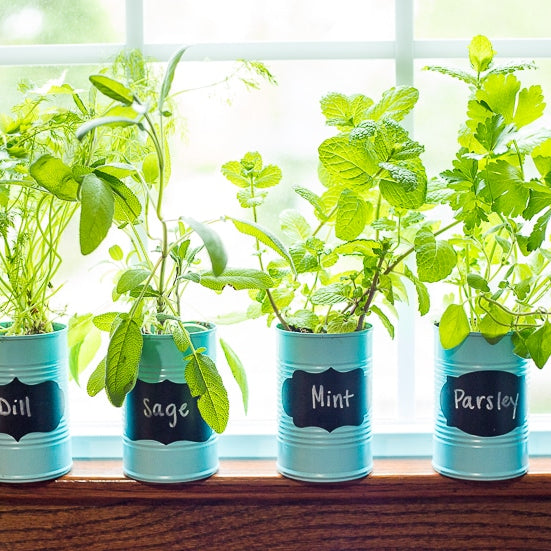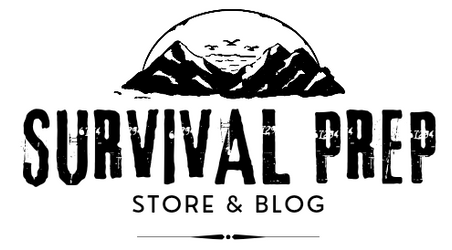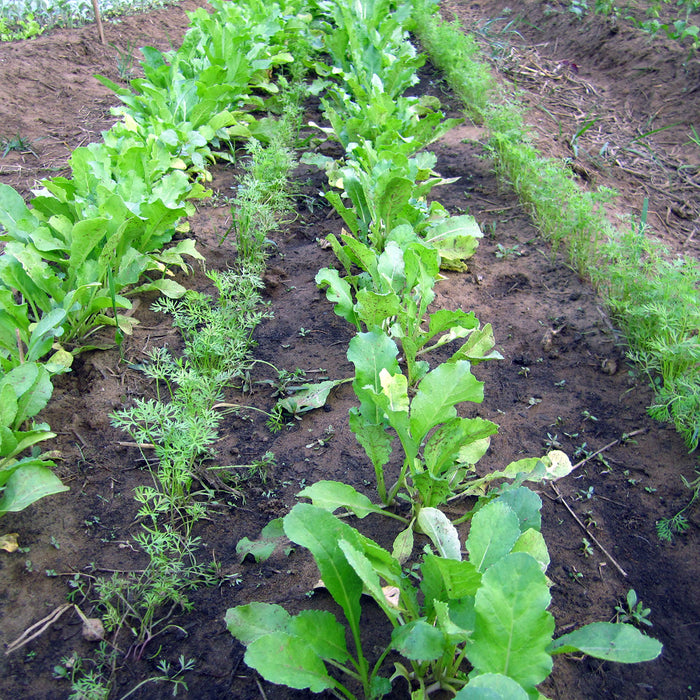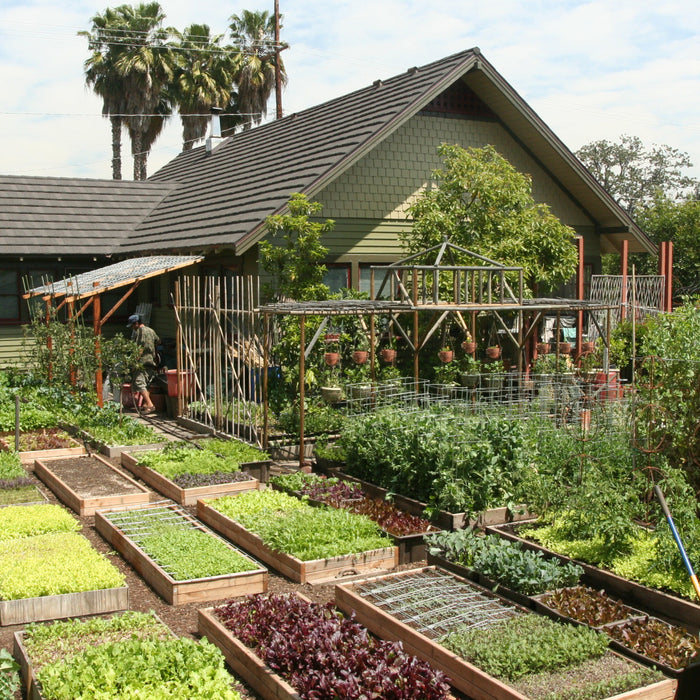

Prepping 101: The Ultimate Guide to Preparedness [2023]
What is prepping?
Prepping is simply the act of preparing for an emergency or disaster. This can range from having extra food and water on hand to learning survival skills such as first aid, fire-making, and self-defense. The goal of prepping is to be self-sufficient and able to survive without outside help for a period of time.
Why is prepping important?
In today's world, emergencies and disasters can happen at any time. We've seen hurricanes, wildfires, and even a global pandemic in recent years. Being prepared can mean the difference between life and death in these situations. It can also give you peace of mind knowing that you have a plan in place.
What to expect?
It's important to understand that emergencies and disasters can happen unexpectedly, and they can have a significant impact on your life. Whether it's a natural disaster or a financial crisis, you should be prepared for the worst-case scenario. You may need to evacuate your home or shelter in place for an extended period of time. Power outages, water shortages, and food shortages are also common during emergencies.
What to prep for in 2023
It's essential to stay informed about current events and keep an eye out for any warning signs of an impending emergency or disaster. Some signs to look out for include:
- Natural disasters: Keep an eye on weather reports and listen to local authorities for any evacuation orders or warnings.
- Economic collapse: Pay attention to the stock market, job losses, and rising prices for essential goods.
- Political instability: Keep an eye on news reports for any signs of unrest or civil unrest in your area.
How to start prepping
Now that you understand the importance of prepping and what to expect, it's time to get started. Here are some steps to take:
As I mentioned earlier, the best way to start prepping is by assessing your risks and identifying your priorities. But how do you do that? Here are some steps to get you started:
Evaluate Your Risks
The first step in prepping is to assess your risks. What are the most likely threats that you and your family could face? Some common risks include natural disasters, power outages, economic collapse, and civil unrest.
For example, if you live in an area that is prone to hurricanes, you should prepare for the possibility of long-term power outages, flooding, and food shortages. On the other hand, if you live in an area that is prone to earthquakes, you should prepare for the possibility of building damage, power outages, and injuries.
Prioritize Your Needs
Once you have identified your risks, you should prioritize your needs. This will help you determine what items you need to stockpile and what skills you need to learn. The basic needs for survival include:
Water: You should have at least one gallon of water per person per day for drinking and sanitation. You should also have a water filter or purification tablets in case your water supply is contaminated.
Food: You should have a supply of non-perishable food that will last at least three days. Consider including canned goods, dried fruits and vegetables, and protein sources such as peanut butter, canned tuna, and beef jerky.
Shelter: You should have a plan in place for shelter in case you need to evacuate your home. This could include a tent, sleeping bags, and other camping gear.
First Aid: You should have a well-stocked first aid kit that includes bandages, antiseptic, pain relievers, and any prescription medications that you or your family members need.
Self-Defense: While it is not necessary to have a large stockpile of weapons, you should have some means of self-defense in case of civil unrest or other emergencies. This could include a firearm, pepper spray, or other non-lethal weapons.
Stockpile Supplies
Once you have identified your needs, you should start stockpiling supplies. This doesn't mean you need to rush out and buy everything at once. Start by setting aside a small amount of money each week to purchase supplies.
You can find many prepping supplies at your local grocery store, camping store, or online. Look for sales and discounts to save money. Some items to consider stockpiling include:
- Water storage containers and purification tablets
- Non-perishable food items
- First aid kit supplies
- Basic tools such as a shovel, ax, and knife
- Camping gear such as a tent, sleeping bags, and portable stove
- Self-defense weapons
Learn Survival Skills
In addition to stockpiling supplies, it is important to learn survival skills. This could include learning how to start a fire without matches, how to purify water, and how to build a shelter.
You can find many resources online and in books on survival skills. Consider taking a class or joining a local group to learn from experts and other preppers.
Stay Informed
Finally, it is important to stay informed about current events and potential threats. This could include monitoring the news, weather reports, and social media. You should also have a plan in place for communicating with family members in case of an emergency.
How do I start prepping?
1. Find a secure place to store your supplies
2. Explore long term food options (freeze-dried foods, cans, peanut butter, etc.)
3. Store at least a 50 gallon water supply, depending on your family size.
4. Invest in a solar powered generator.
5. Make a checklist of your supplies - as you store them.
If you're interested in becoming a prepper one of the most important things you can do to start is to find a secure place to keep your supplies. Many people choose to store their supplies in a designated room, basement, or garage. It is important that this storage is temperature controlled (cool), does not contain gasoline or other potentially toxic fumes, and can be easily accessed when an emergency arises.
After you find a place to store your supplies you should start looking at available food options. Freeze dried food is the best option because it is lightweight and can be carried over long distances if need be. It is also good for up to 25 years! Other than that you'll want to store canned goods, sealed crackers, peanut butter, and at least a 50 gallon water supply depending on your family.
Next, you'll need a way to generate electricity. Solar panels are the best option to ensure that you have at least enough energy to charge radios, phones, and other important electronics. Solar powered generators are popular in the prepper community.
Finally, and most important - make a checklist of all of your supplies as you store them. If you keep track of how many you have of each item, you will better be able to asses how long you have in an emergency situation.
Read: Top 100 Things to Stock Up on for When SHTF.
Why do some people think prepping is pointless?
Some people think that prepping is a waste of time and money, the most common reasons is because people tend to think bad things will never happen to them. People like to believe that they are safe and immune from all of the terrible things that happen in the world. If something terrible happens, they just donate money on a GoFundMe and never think about it again. This mindset is troublesome because we live in a wildly unpredictable world, anything is possible at any given moment.
Talking about this reminds me of any given "doomsday/end of the world movie", the person who always rescues the main character (who is always incredible helpless) is a seasoned prepper. It's normally an old man living at the top of a mountain with an arsenal and 150 years worth of food and supplies buried all over his yard. It sounds incredibly ridiculous, but guess what? When SHTF, he was prepared.
I'm not saying that you have to go to these types of extremes, but you should at least have a 30 days of stored food, water storage, and some type of fuel or cooking source. So if people around you are telling you that prepping is pointless, then you're talking to the main character of a doomsday flick. Just nod your head and show them how many natural disasters have occurred per state since 1953. It's actually terrifying.
Recommended Posts
- How to Build a Bug Out Bag for Kids: Tips and Tricks
- 10 Survival Skills Every Kid Should Know
- Food prices are about to skyrocket even more; Prepare for a 'famine,' followed by housing crash, then equities wipeout - Michael Gayed
- South Threatened by Severe Weather After Texas Tornado Disaster: How to Prepare.
- The Ultimate Guide to Radiation Water Filters: How They Work



